The Federal Reserve is nearly certain to keep its key interest rate unchanged at its policy meeting this week, just a few days after President Donald Trump said he would soon demand lower rates.
Former Clay County elected official arrested in sex sting operation, accused of attempting to meet with teenage boy
At the same time, Fed officials are also navigating a delicate period for the economy: They want to keep borrowing costs high enough to push inflation back to their 2% target, without keeping them too high for too long and plunging the economy into a recession. Vincent Reinhart, chief economist at BNY Investments and a former top economist at the Fed, said Powell won't let Trump's attacks affect his policy decisions.
“In January, we kind of need to see what’s going to happen," Fed governor Christopher Waller said earlier this month in an interview on CNBC. Fed officials “need to see a little more progress on inflation,” he added, though he also said it is getting “very close” to their target., only modestly above its goal, but it has been stuck there for about six months. Still, there are signs that prices should cool later this year.
Fed officials in December signaled that they expected to reduce rates just twice this year. But the 19-member committee that makes interest rate decisions is clearly divided. Some officials, such as Waller and Austan Goolsbee, president of the Fed's Chicago branch, expect inflation to keep cooling and argue that the Fed's rate doesn't need to be so high.
Jerome Powell Vincent Reinhart Austan Goolsbee Beth Hammack U.S. News Business Joe Biden Donald Trump Kevin Warsh Jeffrey Schmid
United States Latest News, United States Headlines
Similar News:You can also read news stories similar to this one that we have collected from other news sources.
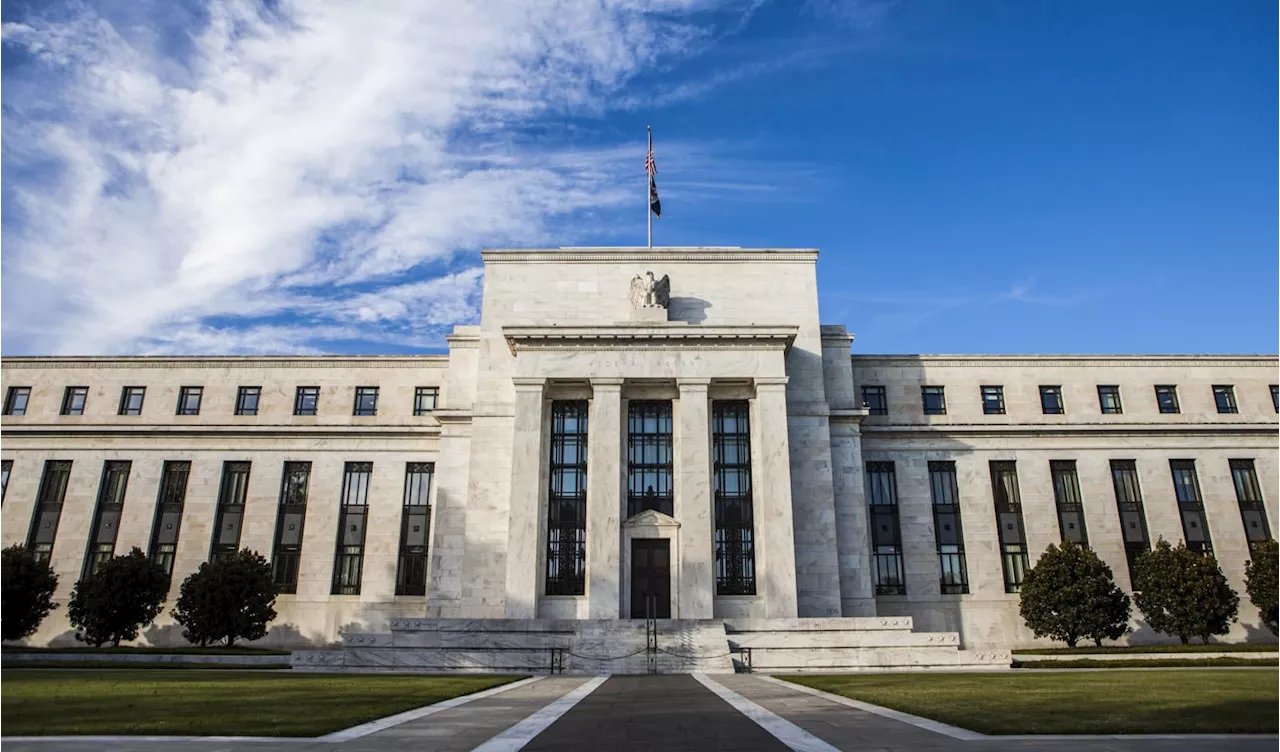 Federal Reserve to Hold Interest Rates Steady Amidst Trump's Demand for ReductionThe Federal Reserve is expected to maintain current interest rates at its January 29th meeting, despite President Trump's call for immediate rate reductions. The decision comes after the Fed's aggressive hikes to combat inflation, which remains above its 2% target. While the Fed's actions influence borrowing costs across various loans, consumers may experience limited immediate relief due to the lag effect on credit card and mortgage rates.
Federal Reserve to Hold Interest Rates Steady Amidst Trump's Demand for ReductionThe Federal Reserve is expected to maintain current interest rates at its January 29th meeting, despite President Trump's call for immediate rate reductions. The decision comes after the Fed's aggressive hikes to combat inflation, which remains above its 2% target. While the Fed's actions influence borrowing costs across various loans, consumers may experience limited immediate relief due to the lag effect on credit card and mortgage rates.
Read more »
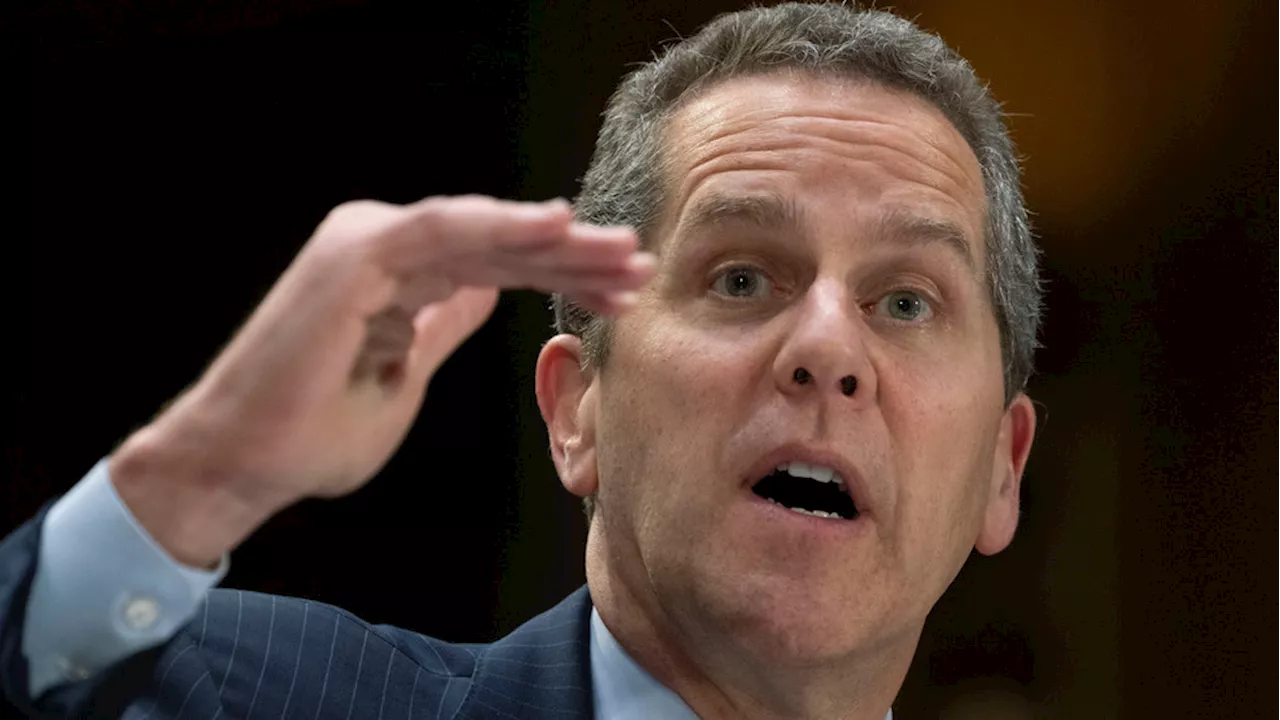 Federal Reserve's Top Regulator Resigns to Avert Trump Administration ConfrontationMichael Barr, Vice Chair for Supervision at the Federal Reserve, announces his resignation, avoiding a potential clash with the incoming Trump administration. Barr's stricter financial regulations faced criticism from major financial firms and Republicans.
Federal Reserve's Top Regulator Resigns to Avert Trump Administration ConfrontationMichael Barr, Vice Chair for Supervision at the Federal Reserve, announces his resignation, avoiding a potential clash with the incoming Trump administration. Barr's stricter financial regulations faced criticism from major financial firms and Republicans.
Read more »
 Federal Reserve's Top Regulator Resigns Ahead of Trump AdministrationMichael Barr, Vice Chair for Supervision at the Federal Reserve, is resigning to avoid potential conflicts with the incoming Trump administration and Republican-led Senate. Barr will remain on the Fed's board of governors until 2032.
Federal Reserve's Top Regulator Resigns Ahead of Trump AdministrationMichael Barr, Vice Chair for Supervision at the Federal Reserve, is resigning to avoid potential conflicts with the incoming Trump administration and Republican-led Senate. Barr will remain on the Fed's board of governors until 2032.
Read more »
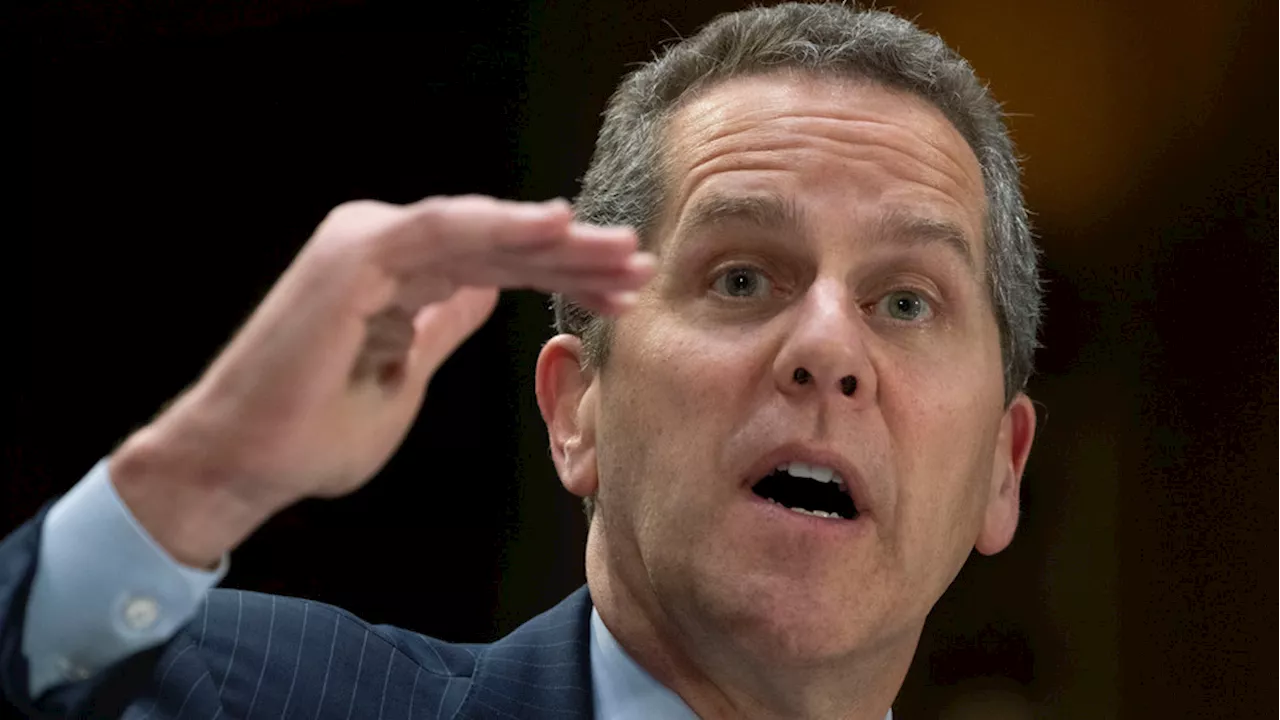 Federal Reserve's Top Regulator Resigns Ahead of Trump AdministrationMichael Barr, Vice Chair for Supervision at the Federal Reserve, announced his resignation to avoid potential conflict with the incoming Trump administration. He will remain on the Fed's board of governors until 2032.
Federal Reserve's Top Regulator Resigns Ahead of Trump AdministrationMichael Barr, Vice Chair for Supervision at the Federal Reserve, announced his resignation to avoid potential conflict with the incoming Trump administration. He will remain on the Fed's board of governors until 2032.
Read more »
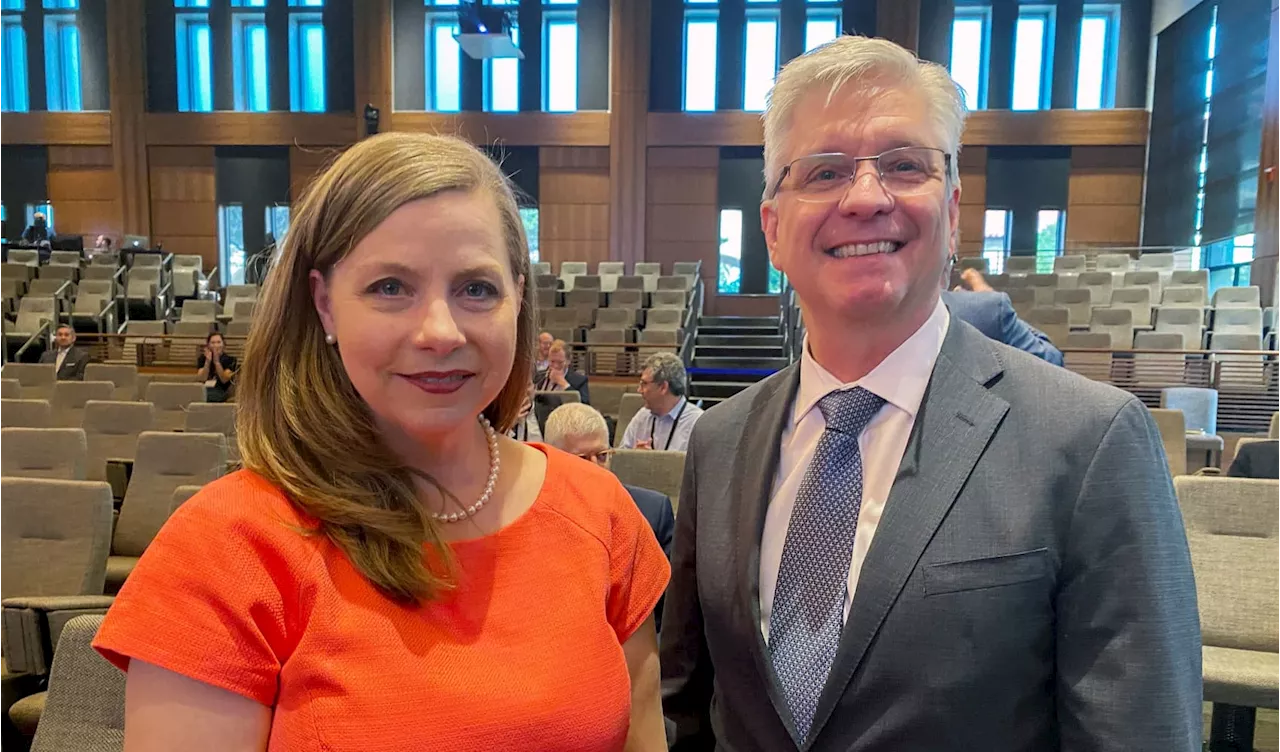 Federal Reserve's Barr to Resign, Clearing Path for Trump's Deregulation AgendaMichael Barr, Vice Chair for Supervision at the Federal Reserve, is resigning to avoid a legal battle with the Trump administration. His departure, 18 months ahead of schedule, potentially paves the way for more industry-friendly regulations under President Trump.
Federal Reserve's Barr to Resign, Clearing Path for Trump's Deregulation AgendaMichael Barr, Vice Chair for Supervision at the Federal Reserve, is resigning to avoid a legal battle with the Trump administration. His departure, 18 months ahead of schedule, potentially paves the way for more industry-friendly regulations under President Trump.
Read more »
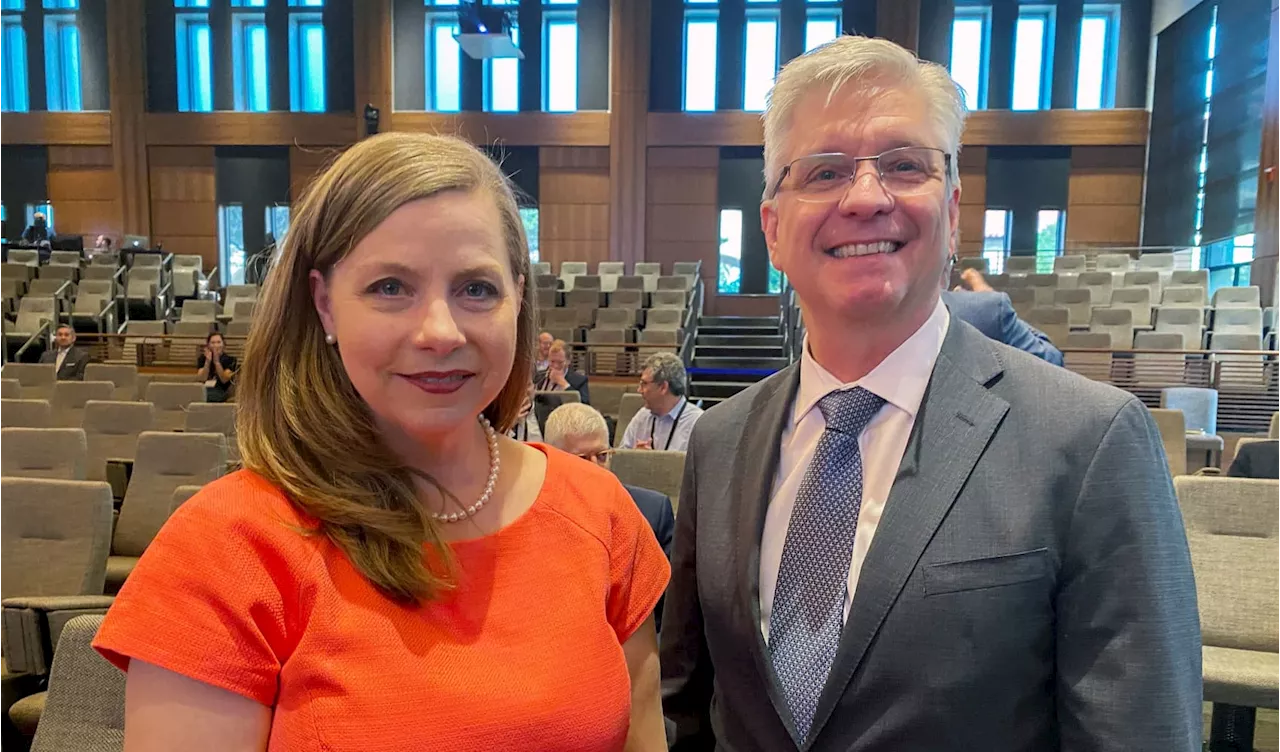 Federal Reserve Vice Chair Barr to Resign, Opening Door for Trump AppointeeFederal Reserve Vice Chair for Supervision Michael Barr announced his resignation, citing a desire to avoid legal battles with the Trump administration. His departure, 18 months earlier than planned, removes a potential obstacle to Trump's deregulatory agenda. The President can now choose either Michelle Bowman or Christopher Waller to fill the vacancy, potentially leading to a more industry-friendly approach to financial regulation.
Federal Reserve Vice Chair Barr to Resign, Opening Door for Trump AppointeeFederal Reserve Vice Chair for Supervision Michael Barr announced his resignation, citing a desire to avoid legal battles with the Trump administration. His departure, 18 months earlier than planned, removes a potential obstacle to Trump's deregulatory agenda. The President can now choose either Michelle Bowman or Christopher Waller to fill the vacancy, potentially leading to a more industry-friendly approach to financial regulation.
Read more »
